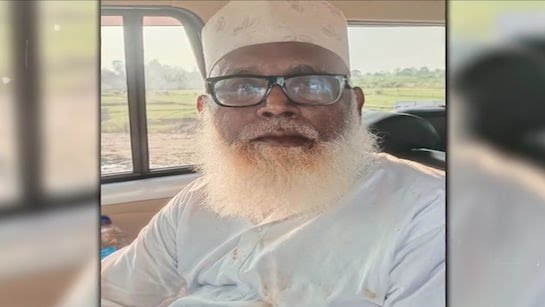Lucknow : In a move drawing both legal scrutiny and public debate, the Uttar Pradesh Anti-Terrorism Squad (ATS) has arrested two individuals — Jalaluddin alias Chhangur Baba and Neetu alias Nasreen — accusing them of involvement in an alleged “religious conversion gang” , reported the NDTV.The arrests have reignited concerns about the criminalization of religious freedom under the controversial Uttar Pradesh Prohibition of Unlawful Religious Conversion Act, 2021.
According to official sources, the duo, residents of Madhpur in Balrampur district, were arrested under sections of the IPC and the anti-conversion law, which has faced criticism from rights groups for targeting minority communities, particularly Muslims.
The police allege that Jalaluddin and Neetu helped facilitate conversions to Islam among economically and socially vulnerable groups such as labourers, widows, and members of backward communities. Authorities claim these conversions were carried out by offering financial aid, emotional support, or promises of marriage — all of which, critics argue, can also be viewed as acts of social service or compassion, not coercion.
Many activists and scholars question whether offering support to the underprivileged and sharing one’s faith can be fairly termed as “unlawful conversion.” They argue that India’s Constitution guarantees the right to freely profess, practice, and propagate religion.
Jalaluddin was arrested under a non-bailable warrant and a ₹50,000 reward had been announced for information leading to his capture — a move some see as disproportionately harsh for a case that hinges on the personal choices of consenting adults.
Two others — Naveen alias Jamaluddin and Jalaluddin’s son Mehboob — had already been arrested in April and are currently held in Lucknow District Jail.
The arrests raise important questions about whether the freedom to change one’s religion is being systematically curtailed under the pretext of protecting public order. Legal experts and human rights defenders have long warned against the use of such laws to stigmatize and criminalize conversions to Islam and Christianity, often painting them as part of a larger “conspiracy” without substantial evidence.
In a secular democracy, genuine concern should lie in ensuring that conversions, if any, are voluntary and informed. Blanket accusations, arrests, and media trials without individual testimonies or verified complaints risk pushing India toward a dangerous climate of suspicion and intolerance.
As the nation continues to grapple with the balance between religious freedom and state oversight, it is crucial to uphold the rights enshrined in the Constitution and resist the urge to vilify faith-based outreach efforts.




